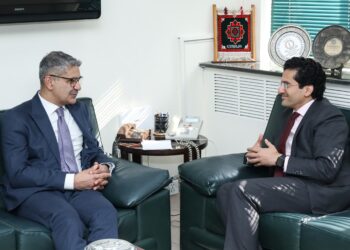ISLAMABAD: The National Electric Power Regulatory Authority (NEPRA) has received multiple petitions from various Karachi-based associations, urging it to reject the Power Division’s request to deny Rs 7.173 billion ( Rs 4.69/kWh) in Fuel Charges Adjustment (FCA) relief for April 2025 from K-Electric consumers.
In addition to the associations, prominent Karachi-based energy expert and intervener Arif Bilwani submitted a detailed letter opposing the Power Division’s last-minute request to defer the FCA hearing for K-Electric. The hearing, originally scheduled for June 19, 2025, was rescheduled to June 23, 2025. NEPRA has fixed June 30, 2025 for next hearing.
Bilwani argued that the FCA mechanism is a statutory and formula -drive process governed by the NEPRA Tariff (Standards and Procedure) Rules, 1998, and does not allow for discretionary regulatory interventions. He emphasized that the hearing notice, in line with legal precedent, invited written or oral comments from affected parties—not intervention requests, which are governed by separate regulatory procedures under the NEPRA Act.
“The Power Division’s oral objection—raised during the hearing without prior written notice—is procedurally improper, lacks legal standing, and violates principles of natural justice,” Bilwani stated. “NEPRA has no legal authority to suspend or defer a duly convened FCA hearing at the unilateral request of a non-regulatory executive body.”
He also noted that the reference fuel price of Rs 15.9947/kWh—derived from the now-expired Multi-Year Tariff (MYT) 2016–2023—has been consistently used in interim FCA calculations without objection. The Power Division, having accepted this benchmark for several months, cannot now retroactively challenge its validity without offering a legally compliant alternative.
More significantly, Bilwani pointed out that the Additional Secretary (Power Finance) of the Power Division admitted on record that their deferral request was not backed by any formal decision of the federal cabinet . “This makes the request ultra vires—without legal authority or democratic legitimacy. It’s a clear case of unauthorized executive overreach.”
The letter also dismissed the Power Division’s justification that IMF program obligations should prevent the passing on of negative FCA to KE consumers. Bilwani argued that the FCA is a pass through cost adjustment under NEPRA rules and does not impact the federal budget or constitute a fiscal liability—unlike quarterly tariff adjustments (QTAs), which sometimes require government subsidies.
He further challenged the claim by the Central Power Purchasing Agency- Guaranteed (CPPA-G) that a uniform national FCA mechanism was under government consideration, noting that no documentary evidence or formal policy has been shared. He warned that NEPRA’s independence must not be compromised based on such speculative and undocumented claims.
Bilwani also drew attention to past instances when KE consumers were subject to high positive FCAs while other DISCOs benefitted from negative adjustments, stating, “At no point then did the Power Division intervene. Their sudden concern now—when KE consumers are due relief—reveals a discriminatory and non-transparent approach, violating Article 25 of the Constitution which guarantees equality before the law.”
Wrapping up the plea, Bilwani urged NEPRA to reject the Power Division’s request in full and adjudicate the matter strictly in accordance with the law. He also reserved the right to submit additional legal documents and arguments during ongoing proceedings. Ends















